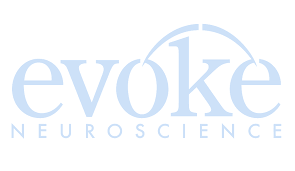Memory loss is a multifaceted and often misunderstood phenomenon, characterized by the inability to remember information, events, or people. While it can occur for various reasons, the types of memory loss are equally diverse. Evoke Neuroscience is here to provide a comprehensive overview of the main types of memory loss, offering a foundation for a better understanding of this complex subject.
1. Transient Global Amnesia (TGA)
A unique but relatively benign type of memory loss, TGA presents as sudden, temporary episodes of amnesia. During these episodes, individuals struggle to recall recent events and may find it challenging to form new memories. Fortunately, TGA episodes typically last only a few hours, with the potential to persist for up to 24 hours. Once resolved, memory function usually returns to normal, providing some relief from the temporary amnesia.
2. Mild Cognitive Impairment (MCI)
MCI involves persistent memory problems that surpass what is typically associated with normal aging. While noticeable, these memory changes do not significantly impede daily life. Importantly, not everyone with MCI progresses to more severe cognitive disorders like Alzheimer’s disease, but having MCI does increase the risk.
3. Alzheimer’s Disease
Perhaps one of the most well-known and devastating forms of memory loss, Alzheimer’s disease is characterized by memory impairment that worsens over time. Initially, it affects recent memories before gradually encroaching on older, more ingrained memories. This form of memory loss significantly disrupts daily activities and often accompanies other cognitive symptoms such as confusion and difficulties with problem-solving.
4. Vascular Dementia
Vascular dementia arises from reduced blood flow to the brain, leading to memory problems. Individuals with this type of memory loss may experience difficulties with recalling and learning new information. Often, these cognitive changes occur distinctly after a stroke or a significant event that reduces blood flow to the brain.
5. Dementia With Lewy Bodies (DLB)
DLB, characterized by the presence of Lewy bodies—abnormal clumps of protein—can lead to memory impairment. However, what sets DLB apart is its fluctuating nature. People with DLB may experience varying levels of memory loss and alertness, making the condition challenging to diagnose. Additionally, DLB is associated with symptoms such as visual hallucinations and motor symptoms akin to those of Parkinson’s disease.
6. Frontotemporal Dementia (FTD)
FTD involves damage to the front and sides of the brain. Interestingly, memory loss may not be the primary symptom in FTD. Instead, behavior and personality changes often take precedence or are more significant than memory loss. FTD can also result in issues with language skills and emotional expression, making it a complex and multifaceted condition.
In conclusion, memory loss is not a one-size-fits-all phenomenon. The various types of memory loss are distinguished by their causes, symptoms, and progression. Understanding these distinctions is crucial for accurate diagnosis and effective management. Whether it’s the transient nature of TGA, the progressive decline seen in Alzheimer’s disease, or the fluctuating course of DLB, each type of memory loss warrants individual attention and care Evoke Neuroscience.
